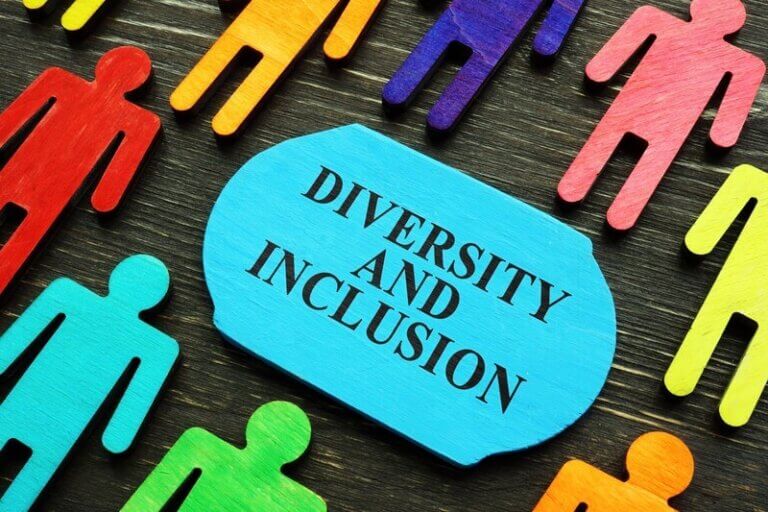In modern recruitment, diversity and inclusion (D&I) involves creating an environment where everyone can contribute positively. Because of the societal shift towards equity and belonging, D&I will be a key component of talent acquisition. Diverse workforces benefit businesses through increased innovation, expanded market visibility, and greater employee engagement.
D&I is a key component of recruitment strategies that helps organizations fulfill their ethical and social responsibilities and improve their competitiveness in the global market. Diverse teams foster creativity and innovation, which are crucial in a rapidly changing business environment. D&I-focused organizations can serve a diverse customer base and improve overall customer satisfaction and loyalty.
In addition, companies that embrace diversity and inclusion will likely see a boost in employee morale and engagement. Individuals who feel valued and heard are more likely to perform better, which reduces turnover and increases productivity.
This guide will discuss key topics such as strategies and metrics for measuring progress in diverse recruitment.
The Changing Landscape of Diversity and Inclusion in Recruitment
Understanding recruitment practices from a historical perspective can provide insights into the progress of D&I initiatives. Recruitment practices in the past were largely driven by compliance-based diversity initiatives, and measures such as affirmative action laws and equal opportunity hiring policies paved the way for the change. These efforts aimed to reduce systemic inequality and provide more opportunities for marginalized groups.
Recent years have seen a shift in the paradigm towards value-driven inclusivity that goes beyond mere compliance. The growing expectation of both job seekers and employers is that modern organizations understand the value of diversity in their workforce. More people are looking for workplaces that value inclusivity. This influences their decision-making process when selecting a job and determines how loyal they will be to an organization.
Different regions in the world have approached diverse hiring differently. In countries like Canada and Australia, where there is a rich ethnic diversity, there is a greater emphasis on multiculturalism. International recruitment also plays a crucial role in fostering an inclusive workforce by bringing individuals from different cultural backgrounds together; therefore, enhancing collaboration and innovation.
Strategies for Inclusive Recruitment
It is important to rewrite and improve job descriptions to attract a diverse pool of talent. Companies can avoid unintentional exclusion by avoiding biased or gender-coded language. By using inclusive language that emphasizes the organization’s commitment to diversity, applicants from varied backgrounds will perceive the company as welcoming and supportive.
Blind hiring and AI-driven screening are good strategies to address unconscious biases during the recruitment process. Companies can make decisions based on merit by anonymizing applicant information and using AI to screen resumes.
For inclusive recruitment, it is important to expand talent pools by focusing on historically underrepresented groups. Diverse job boards and platforms for recruitment ensure a wider reach to potential candidates across a variety of demographics. Additionally, outsourced staffing solutions can help businesses connect with skilled professionals from diverse backgrounds, ensuring a fair and inclusive hiring process. Structured and bias-free interviewing techniques, such as standardized questions and diverse hiring panels, also contribute to fair assessments.
Diversity and Inclusion in Recruitment: Measuring Success
It is important to track key metrics to assess the progress of D&I efforts. Organizations should monitor the percentage of diverse hires across departments and levels, watch the retention rates among diverse employees, and conduct pay equity analyses. Surveys on employee satisfaction and inclusion can also provide valuable insights into the effectiveness of D&I efforts.
However, measuring D&I poses challenges, such as ensuring that demographic data are provided by employees accurately and voluntarily. It’s crucial to move beyond tokenistic approaches—meaningful inclusion should be prioritized over merely meeting numerical targets. Companies can achieve real progress by focusing on genuine engagement and growth opportunities.
AI-powered analytics and data-driven recruitment help identify and address hiring gaps. The ability to track the career progression of diverse hires over time allows organizations to align D&I with their business goals, ensuring sustained inclusivity and equal opportunities for career advancement.
The Future of Diversity and Inclusion in Recruitment
The advancement of technology will lead to more inclusive hiring practices. AI and machine learning can streamline recruitment, reduce biases, and improve decision-making.
In the future, we can expect to see an increase in demand for inclusive leadership training. Leaders who are equipped with the skills to create inclusive environments will be able to drive culture change and ensure sustainable progress. In addition, more stringent accountability in reporting diversity metrics is anticipated, prompting companies to maintain transparency and integrity in their efforts.
Global collaboration will be crucial in shaping the future of D&I recruitment strategies. As cross-border relationships strengthen, organizations can benefit from shared insights and practices. This will facilitate the creation of multi-cultural workforces that thrive on diverse perspectives and experiences.
Building a Truly Inclusive Workplace for Lasting Impact
Meaningful D&I initiatives go beyond meeting hiring quotas—they demand a deep-seated commitment to embedding these values in company culture. Businesses must take actionable steps backed by real strategies and measurable progress. They should create environments where all individuals can thrive and contribute to organizational success.
Take the Next Step Toward Inclusive Hiring
Building a diverse and inclusive workforce requires more than just good intentions—it demands strategic action. Whether you’re looking to refine your recruitment processes or expand your talent pool, partnering with experts can make all the difference.
John Clements offers outsourcing solutions that help businesses implement inclusive hiring strategies while streamlining their recruitment efforts. Their expertise in sourcing diverse talent ensures that organizations can build high-performing, multicultural teams.
Get in touch with us and learn how we can support your diversity and inclusion goals.





